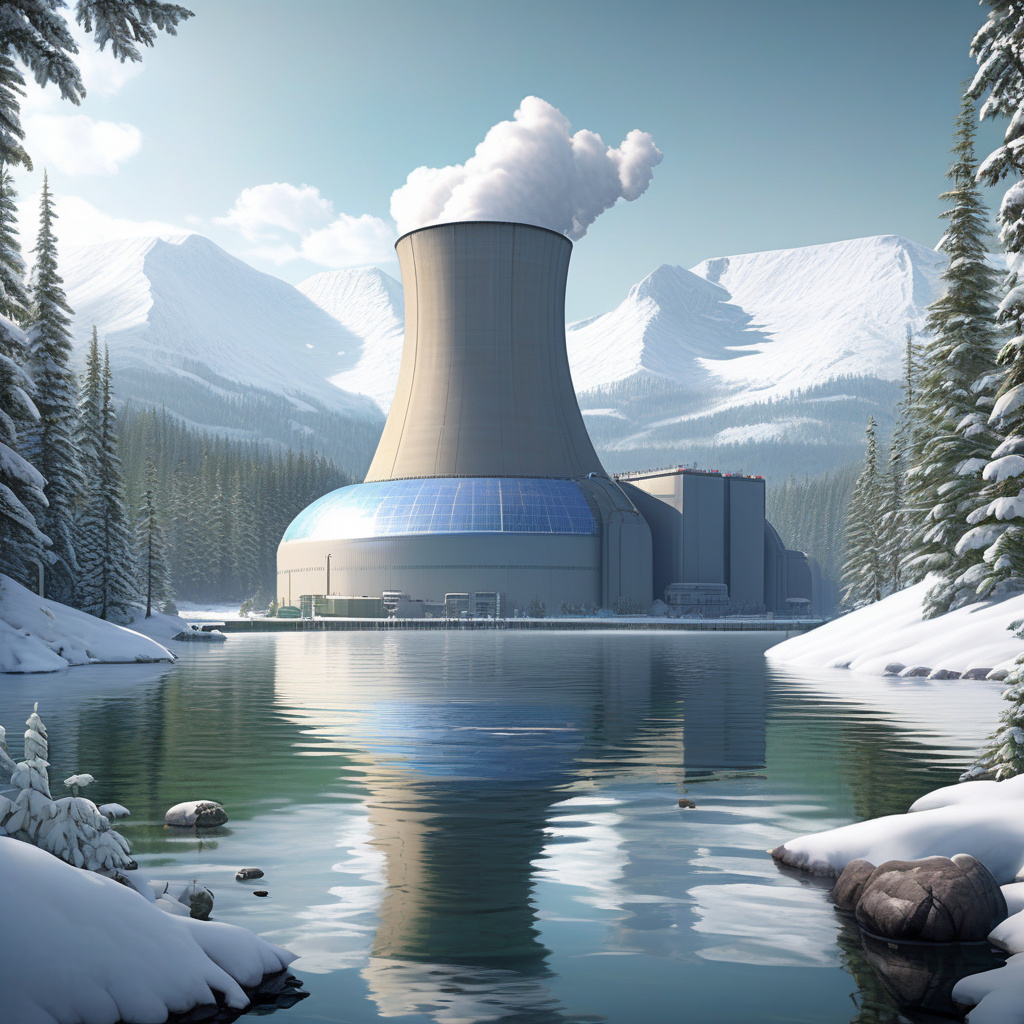Canada’s Floating Nuclear Power Plants: Testing Resilience Against Threats
Prodigy Clean Energy and Serco have announced progress on a prototypical test program demonstrating the robustness of Canada’s floating nuclear power plants. These innovative structures are designed to not only provide sustainable energy but also to withstand potential security threats such as missile attacks. The development of floating nuclear power plants represents a significant advancement in clean energy technology, offering a flexible and resilient solution for power generation in remote or challenging environments.
The concept of floating nuclear power plants is not new, with countries like Russia already operating similar facilities. However, Canada’s approach to this technology involves rigorous testing to ensure the safety and security of these mobile power stations. In a world where energy security is paramount, the ability to deploy nuclear reactors on water provides a strategic advantage, especially in regions where traditional power infrastructure may be limited or vulnerable.
One of the key challenges in developing floating nuclear power plants is ensuring their resilience against external threats. Prodigy Clean Energy and Serco’s test program aims to address this challenge by simulating various scenarios, including missile attacks, to assess the structural integrity of the floating reactors. By subjecting the plants to extreme conditions, the developers can identify potential weak points and implement mitigation measures to enhance their security.
In addition to security testing, the prototypical test program also evaluates the performance and efficiency of the floating nuclear power plants under normal operating conditions. This comprehensive approach ensures that the technology not only meets safety standards but also delivers on its promise of clean and reliable energy generation. By combining innovation with rigorous testing, Prodigy Clean Energy and Serco are setting a new benchmark for the development of nuclear power solutions.
The potential benefits of floating nuclear power plants extend beyond security and reliability. These mobile facilities can be deployed to remote areas or disaster-stricken regions to provide emergency power, supporting critical infrastructure and rescue operations. Moreover, the modular design of the floating reactors allows for scalability, with the possibility of adding more units to meet increasing energy demands.
As Canada continues to invest in clean energy initiatives, the development of floating nuclear power plants demonstrates the country’s commitment to innovation and sustainability. By harnessing nuclear power in a mobile and resilient form, Canada has the opportunity to strengthen its energy security and reduce its carbon footprint. The successful testing of these floating reactors paves the way for a future where clean energy is not only accessible but also adaptable to a changing world.
In conclusion, Prodigy Clean Energy and Serco’s progress on testing Canada’s floating nuclear power plants against security threats marks a significant milestone in the development of clean energy solutions. By prioritizing safety, resilience, and performance, these innovative structures have the potential to revolutionize the way we generate power, especially in challenging environments. As the world faces increasing energy demands and security concerns, the emergence of floating nuclear power plants offers a promising pathway towards a sustainable and secure energy future.
Canada, floating nuclear power plants, clean energy, innovation, sustainability












